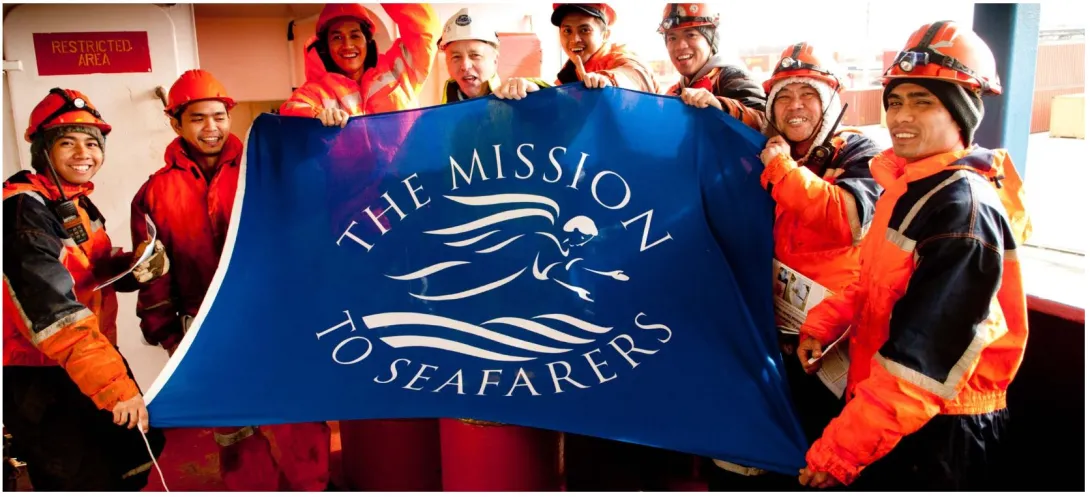Our industry faced particularly difficult new challenges in 2020, but few were impacted more than our seafarers. As the pandemic swept across the globe, charities including Mission to Seafarers played an essential role in providing support to those in need. In this article, we talk to the team and learn about the critical services they provided.
Mission to Seafarers has always considered seafarers to be key workers and the charity’s front-line staff have been determined to support them in a way which has been practical and safe, but 2020 presented additional challenges. Despite this, Mission to Seafarers maintained port-based welfare services in approximately 40 per cent of its network and has been the only welfare charity to do so.
“We have worked hard to make our seafarers’ centres around the world ‘COVID-19 secure’, and distributed PPE to all front-line teams,” says Ben Bailey Director of Advocacy and Regional Engagement at Mission to Seafarers. The team followed strict hygiene protocols and found creative ways to provide the goods seafarers requested. This included shopping and data cards delivered via a pulley system so that the team could maintain a safe distance.
Launching the Chat to a Chaplain digital service
In April, Mission to Seafarers launched its digital chaplaincy service Chat to a Chaplain. This important tool provided 24/7 support to seafarers and their families, with the communication delivered through the website and social media. “We have worked with seafarers who have had their contracts extended, future employment curtailed and those who have been abandoned in ports,” Ben explains.
Overcoming onshore obstacles
In almost all cases, seafarers were banned from taking onshore leave. Previously, Mission to Seafarers provided minibuses for seafarers to go shopping, but this year they set up online ordering facilities to ensure essential goods were ready prior to ships arriving in port.
The families of seafarers have also been heavily impacted, and the Mission worked to ensure those impacted also received provisions. “In India, we have provided regular supplies of rice, vegetables and spices to over 1,000 families, and in Manila, have delivered food parcels to the many dormitories in downtown manila where out-of-work seafarers have been confined to very close quarters,” Ben says.
New initiatives that have made a difference
Early in the pandemic, Mission to Seafarers was contacted by a partner organisation that asked for support for more than 250 cadets who had been studying in the UK. The colleges had closed, and students were left unable to pay their rent and buy food.
“Our Samaritan’s Fund provided guarantees to landlords and regular supermarket vouchers to enable the cadets to live. We also worked with ISWAN, the Director General of Shipping in India and the Department for Transport here in the UK to help get the cadets on repatriation flights home. The whole process took over a month, but all were relieved when they managed to get home,” Ben says.
In addition, the Mission’s Family Network in the Philippines held weekly online meetings for members. In this location, quarantine was extreme with many not allowed to leave their homes at all. “In one meeting, families heard from a wellbeing expert and learnt breathing and stretching techniques. In another, seafarers’ children sang songs and learnt dances, which were then recorded and sent to their seafaring parents on ships,” Ben says.
These innovative ways to connect seafarers with their families have been invaluable, with many reporting concerns about their mental health deteriorating as their time on board was extended, often multiple times. “In those circumstances, our chaplains have provided personal support to the seafarer, speaking to them regularly via WhatsApp or FaceTime and arranging for teams to visit them in port to assist them,” Ben explains and adds that the Mission’s global network of 200 ports has become a lifeline of support for many during the pandemic.
What sort of solutions are still required?
“There have been herculean efforts by the International Chamber of Shipping, shipowners, crewing managers and the industry to repatriate seafarers, but conditions will not improve for all unless every government designates seafarers as key workers and allows crew changes to take place in their territories,” Ben points out.
The need for repatriation is becoming increasingly pressing as the festive season arrives. “The ideal present would be for seafarers at the end of their contract to be repatriated home and allowed to see their loved ones,” Ben says.
The Mission’s chaplains and centre staff will be at the quayside for seafarers over the Christmas period, delivering access to communication, shopping and many will be providing Christmas presents. This year, the Mission has received £25,000 from the ITF and the ITF Seafarers’ Trust, to buy gifts for seafarers. In some cases, this will include the purchase of local supplies, toiletries and treats.
Strength in partnership
The Mission to Seafarers can’t do its important work without partnerships. This year RightShip made an unrestricted donation to provide support, but there is still much to be done.
Its new Sustaining Crew Welfare Campaign will assist with provide aid in justice and welfare cases, training for seafarers and front-line staff and development of Family Support services in India. There are several key projects in the pipeline which will become operational in 2021, including WeCare e-learning in social communications and financial wellbeing education.
Mission to Seafarers can’t continue its work without the ongoing support of charity partners and industry groups. RightShip is proud to partner with Mission to Seafarers. To donate to the mission, visit: https://missiontoseafarers.com.au/donate/.
